Leadership
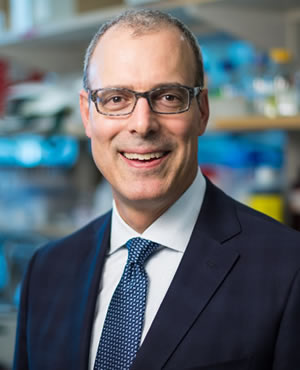
Eric R. Fearon, M.D., Ph.D.
Emanuel N Maisel Professor of Oncology
Director, University of Michigan Rogel Cancer Center
Associate Dean for Cancer Programs, University of Michigan Medical School
Fearon was named director of the University of Michigan Rogel Cancer Center in 2016. He has served as the Emanuel N. Maisel Professor of Oncology and was appointed associate director for basic science research at the Cancer Center in 1995. He also served as deputy director, from 2005-2016.
Fearon has authored more than 135 peer-reviewed research manuscripts and more than 60 review/editorial articles and book chapters. As a professor of internal medicine in Human Genetics and Pathology, he has pursed research in the cancer genetics field, particularly investigations of selected gene defects that underlie colon and rectal tumor development and progression to advanced stages. He has served on the editorial boards of various journals in the cancer biology and human genetics fields and currently is an editorial board member or editor for a number of journals, including The Journal of Biological Chemistry, Current Biology, Journal of Clinical Investigation, Gastroenterology and Molecular Cancer Research. In addition, he has served as a member or chair of various National Institutes of Health and National Cancer Institute advisory groups and grant review committees, including the Panel to Investigate the NIH Investment in Gene Therapy, the National Cancer Institute Board of Scientific Advisors, and the NIH Pathology B and Cancer Genetics Study Sections. He is also a fellow of the American Association for the Advancement of Science.
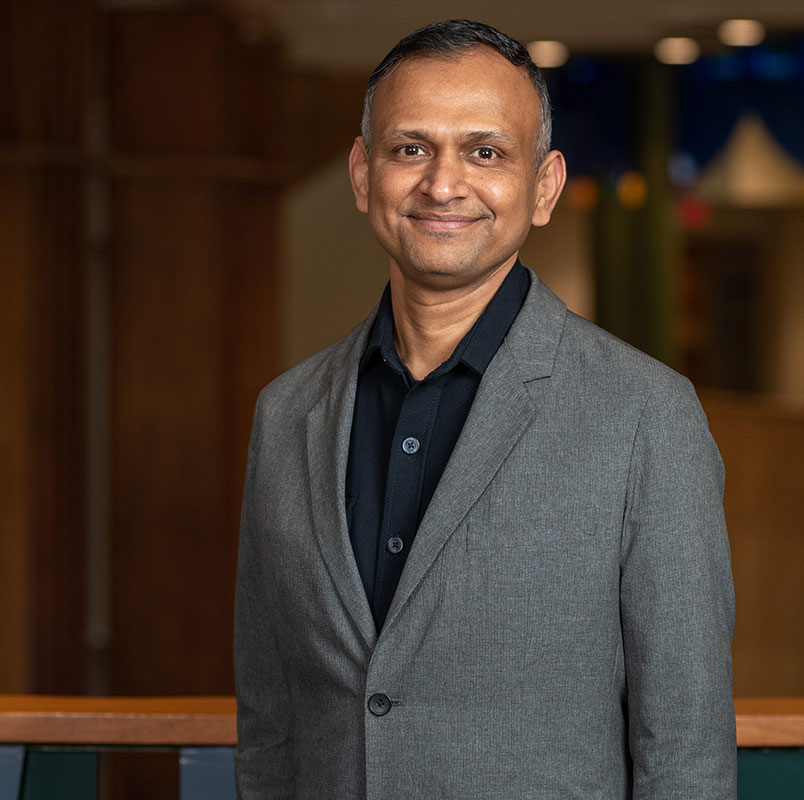
Veera Baladandayuthapani, Ph.D., associate director for quantitative data sciences
Baladandayuthapani is chair and professor of biostatistics at the University of Michigan School of Public Health and professor of computational medicine and bioinformatics at the Medical School. He received his doctorate in statistics from Texas A&M University and a master’s from the University of Rochester. He joined the University of Michigan in 2018 and currently serves as director of Rogel’s Cancer Data Sciences Shared Resource. Baladandayuthapani’s research interests are in developing statistical and machine learning methods for large and complex datasets such as high-throughput genomics, epigenomics, transcriptomics and proteomics as well as high-resolution cancer imaging. A special focus is on developing spatial and integrative models combining different sources of data for biomarker discovery and clinical prediction to aid precision/translational medicine. He has held multiple grants from the National Institutes of Health and National Science Foundation to develop innovative and advanced biostatistical and bioinformatics methods and software for big datasets in oncology. He is a fellow of the American Statistical Association, Association American Association for the Advancement of Science and elected member of the International Statistical Institute.
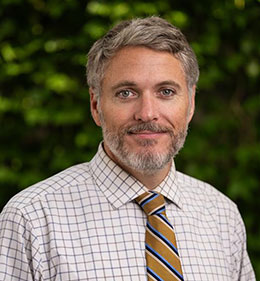
Kyle Cuneo, M.D., associate director for clinical research
Cuneo is clinical professor of radiation oncology at Michigan Medicine. He received his medical degree from Vanderbilt University School of Medicine in 2007, where he also completed an internship. He completed his residency in radiation oncology at Duke University Medical Center and joined the University of Michigan faculty in 2012, where he treats patients with gastrointestinal and other cancers. Cuneo performs preclinical and translation research in gastrointestinal malignancies, including discovery of early treatment response markers.
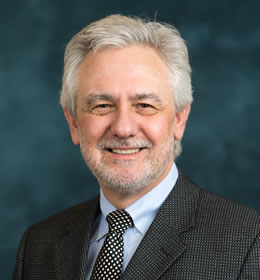
Andrzej Dlugosz, M.D., associate director for basic science research
Dlugosz is the Poth Professor of Cutaneous Oncology and a professor of dermatology and of cell and developmental biology at the University of Michigan Medical School. He received his medical degree from Pennsylvania State University College of Medicine and trained at the University of Pennsylvania and the National Cancer Institute. He joined the faculty at the University of Michigan in 1997 and currently serves as associate chair for research in the Department of Dermatology. Dlugosz’s research focuses on how alterations in the Hedgehog signaling pathway contribute to cancer initiation, progression and maintenance in tumors arising in the skin and other organs. This work has direct bearing on efforts to target the Hedgehog or interacting signaling pathways for treating certain types of cancer. In more recent studies, he has also been investigating the molecular underpinnings of Merkel cell carcinoma, an aggressive skin cancer. Dlugosz has received numerous honors and awards, including election to the American Society for Clinical Investigation and the Association of American Physicians.
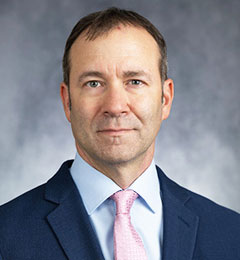
Christopher Friese, Ph.D., R.N., associate director for cancer control and population sciences
Friese is the Elizabeth Tone Hosmer Professor of Nursing at the U-M School of Nursing and professor of health management and policy at the School of Public Health. He received a bachelor’s and doctorate in nursing from the University of Pennsylvania School of Nursing and completed a three-year postdoctoral fellowship in cancer control and outcomes at Harvard University/Dana-Farber Cancer Institute. He has practiced as a staff nurse at leading cancer centers, including the University of Pennsylvania, Johns Hopkins Hospital and the Rogel Cancer Center. Friese is a national expert in the analyses of claims data to study care quality and has executed large surveys of ambulatory oncology nurses. He leads an interdisciplinary research program to study the quality of care delivered in understudied ambulatory oncology settings from the perspectives of patients and clinicians. In 2018, Friese was appointed to a six-year team on the Patient-Centered Outcomes Research Institute (PCORI) Board of Governors.
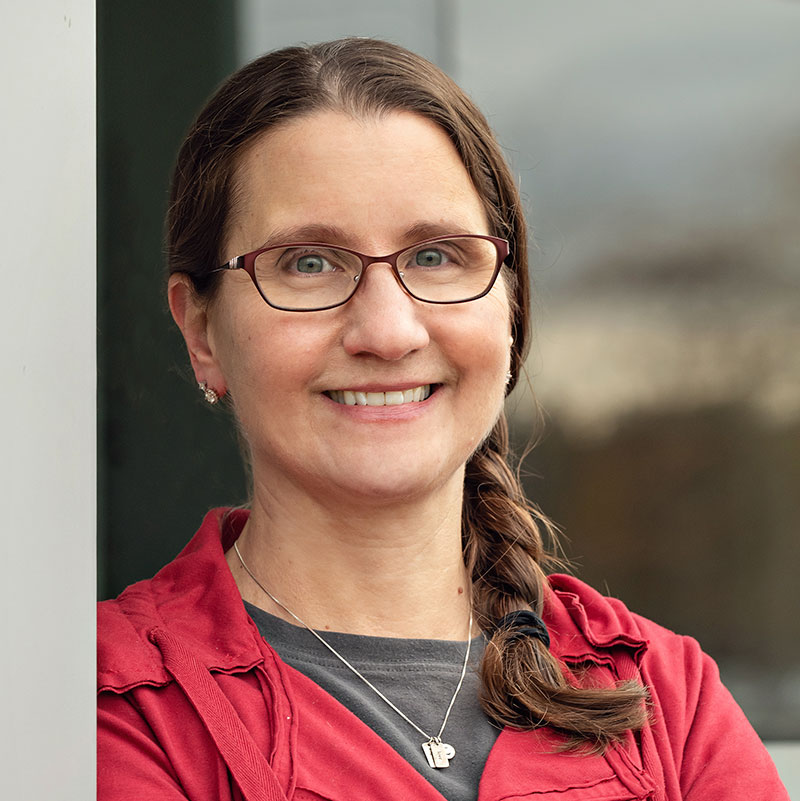
Sarah Hawley, Ph.D. MPH, associate director for training, education and career development
Hawley is professor of general medicine at the University of Michigan Medical School and professor of health management and policy and of health behavior and health education at the School of Public Health. She is also a research investigator at the Ann Arbor VA Center for Clinical Management Research. She received her doctorate from the University of North Carolina School of Public Health and joined the University of Michigan faculty in 2004. Hawley’s research focuses on evaluating and improving patient centered cancer care across the continuum from screening through treatment and into survivorship. She is passionate about mentoring junior faculty in cancer control and prevention and serves as primary or co-mentor on several career development awards. She is also an active member of several education and training committees. Hawley is co-leader of the Rogel Cancer Center’s health behavior and outcomes program and co-director of the Center for Health Communications shared resource.
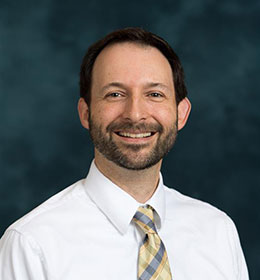
Mathew H. Innes, MBA, interim chief associate director of administration
Innes joined the University of Michigan Medical School in 2002 and has been dedicated to cancer research administration for over 20 years. As the interim chief department administrator of the Rogel Cancer Center, Innes oversees a broad team conducting research administration, clinical research, community outreach and engagement, educational initiatives, communications, patient and family support services, and more. Innes serves on the Rogel Cancer Center leadership teams and partners with the center director and associate directors to lead strategy and planning efforts across the center.
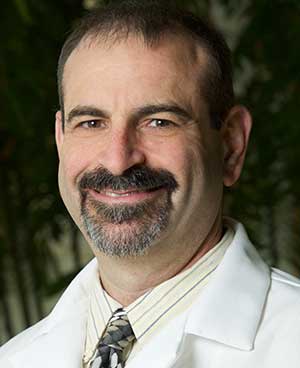
Evan T. Keller, D.V.M., Ph.D., associate director for shared resources
Keller is a professor of urology and pathology at the University of Michigan Medical School. He received a doctor of veterinary medicine and master’s of preventive veterinary medicine from the University of California Davis and a doctorate in developmental biology from the University of Wisconsin. Keller directs a National Institutes of Health-funded program project on prostate cancer bone metastasis and is co-director of the Rogel Cancer Center’s Single Cell Analysis Shared Resource. Using a combination of molecular, cellular and animal studies as well clinical trials, his lab explores genes that regulate metastasis and the interaction between the host microenvironment and cancer cells. He is using single cell RNA-Seq to identify rare cell populations and promote precision medicine. Keller has more than 200 publications in aging, cytokines, bone metastasis and prostate cancer biology and sits on several foundations, editorial boards, and NIH and Department of Defense peer review panels.
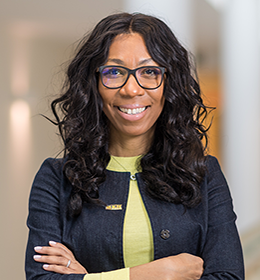
Erika Newman, M.D., associate director for cancer health equity
Newman is associate professor of pediatric surgery at Michigan Medicine. She received her medical degree from Georgetown University in 2001, and completed general surgery training at U-M and fellowship training at the University of Chicago Medicine Comer Children's Hospital before joining the faculty at U-M in 2010. Newman serves as surgical director of the C.S. Mott Children’s Hospital’s solid tumor oncology program and runs a basic-science research lab focused on understanding tumor-specific DNA repair mechanisms as novel therapeutic options for pediatric neuroblastoma. She has a longstanding interest in addressing the health care needs of the community.
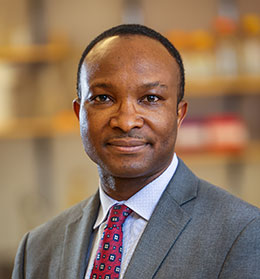
Simpa Salami, M.D., M.P.H., associate director for research workforce and leadership development
Salami is a fellowship-trained, board-certified urologic oncologist and associate professor of urology at Michigan Medicine. He obtained his medical degree from the College of Medicine, University of Ibadan, Nigeria. Thereafter, he completed a master of public health program at Harvard University, general surgery internship at the Brigham and Women’s Hospital in Boston, urology residency at Hofstra Northwell Health School of Medicine in New York, and urologic oncology fellowship at the University of Michigan. Salami is a translational surgeon-scientist whose laboratory focuses on developing novel cancer biomarkers to overcome tumor heterogeneity and multifocality as well as elucidate optimal paradigms for early detection of urologic cancers, risk stratification, prognostication and prediction of treatment response. Salami’s lab collaborates with investigators all over the world to understand the molecular underpinnings of urologic cancer and associated disparities. Salami is a recipient of several awards including being named an inaugural Biden White House Cancer Moonshot Scholar. He has served on several national guideline committees.
